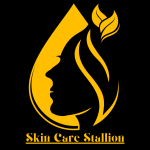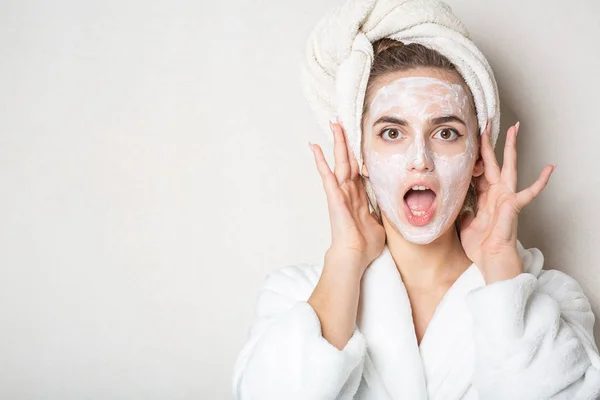Why is skincare important? Because maintaining a consistent routine can not only enhance your appearance but also promote overall health and well-being.
In a world brimming with beauty products and endless skincare routines, the question “Why is skincare important?” often surfaces with renewed urgency. Skincare isn’t just about vanity or adhering to trends; it’s a vital practice for maintaining overall health and well-being.
Our skin, the body’s largest organ, serves as a protective barrier against environmental pollutants, harmful UV rays, and pathogens. Investing in a thoughtful skincare regimen can prevent premature aging, combat various skin issues, and enhance self-confidence.
Understanding the significance of skincare extends beyond mere aesthetics, revealing a deeper commitment to nurturing our body’s first line of defense.
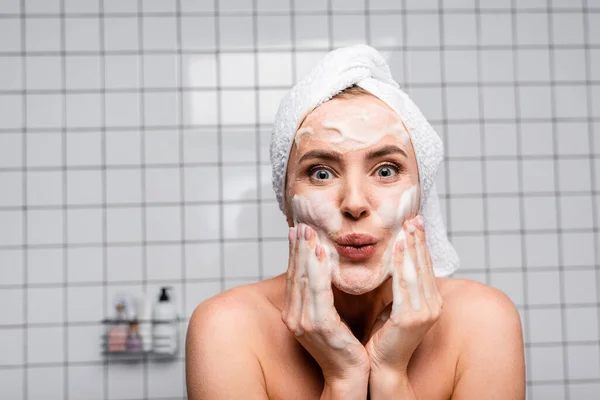
Why Is Skincare Important
Skincare is crucial for maintaining both health and beauty. Proper skincare protects against environmental damage, prevents premature aging, and boosts self-esteem. It enhances the skin’s natural barrier, ensuring it remains hydrated, clear, and resilient.
Effective skincare routines address specific concerns such as acne, dryness, and sun damage. Ultimately, investing in skincare contributes to overall well-being and a youthful appearance.
The Benefits of Healthy Skin
Healthy skin is more than just a cosmetic benefit; it’s fundamental to overall health. A well-maintained skincare routine helps balance skin oils, combat environmental pollutants, and reduce the risk of serious conditions like skin cancer.
By incorporating cleansing, exfoliation, and moisturization, you ensure that your skin remains in its optimal condition. Hydrated skin functions better, leading to fewer issues like irritation and sensitivity.
Prevention and Protection
Regular skincare routines provide essential protection against harmful UV rays, pollution, and harsh weather conditions. Sun protection, through sunscreens and antioxidants, can significantly reduce the risk of sun damage and premature aging.
Additionally, preventing skin issues through daily care helps avoid more significant problems later, such as deep wrinkles and chronic dryness. Using products with SPF and antioxidants is a proactive approach to skincare.
Addressing Common Skin Concerns
Targeted skincare addresses various common issues, including acne, hyperpigmentation, and aging. For example, incorporating salicylic acid can help manage acne, while vitamin C can brighten uneven skin tones.
Anti-aging ingredients like retinoids and peptides promote collagen production and improve skin elasticity. Tailoring your skincare routine to address specific concerns ensures more effective and visible results.
Enhancing Self-Esteem and Confidence
A consistent skincare regimen can significantly boost self-esteem. Clear, healthy skin often translates to increased confidence and a positive self-image.
By addressing skin concerns and maintaining a healthy complexion, individuals feel more comfortable and self-assured. Investing in skincare isn’t just about appearance it’s about fostering a sense of well-being and confidence in one’s skin.
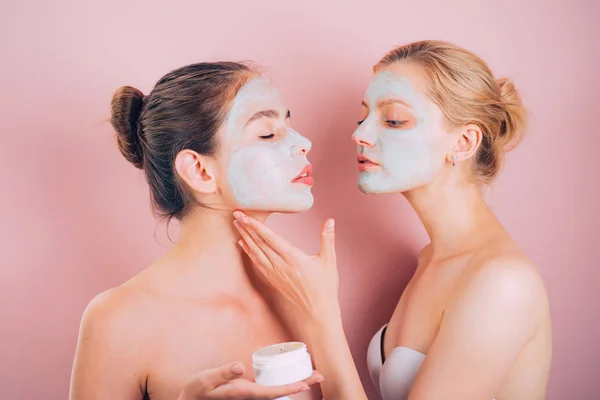
The Science Behind Skincare
Skin Anatomy and Function
Structure of the Skin
Epidermis
The outermost layer of skin, providing a crucial barrier. It’s composed of keratinocytes, melanocytes, and other cells that protect against environmental damage and pathogens.
Dermis
Beneath the epidermis, this layer houses collagen and elastin fibers, blood vessels, and nerve endings. It supports skin structure and elasticity.
Hypodermis
Also known as the subcutaneous layer, it acts as a cushion, absorbing shocks and insulating the body. It consists of fat and connective tissues.
Skin Functions
Barrier Protection
The skin acts as a protective shield against harmful bacteria, pollutants, and UV radiation. It helps maintain overall health and prevents infections.
Temperature Regulation
Through sweat production and blood vessel dilation, the skin regulates body temperature, ensuring homeostasis.
Sensation
Skin contains sensory receptors that detect temperature, pressure, and pain, allowing the body to respond to external stimuli.
Common Skin Issues
Acne
A prevalent skin condition caused by clogged pores, leading to pimples, blackheads, and cysts. It often affects the face, back, and shoulders.
Eczema
Characterized by inflamed, itchy, and red patches of skin. This chronic condition can be triggered by allergens or irritants.
Psoriasis
An autoimmune disorder that accelerates skin cell turnover, resulting in scaly, silvery patches on the skin. Commonly affects the scalp, elbows, and knees.
Sunburn
Caused by overexposure to UV radiation, leading to redness, pain, and peeling. Long-term sunburn can contribute to skin aging and cancer risk.
Effects of Aging on Skin
Wrinkles
Fine lines and deeper folds develop due to decreased collagen and elastin production. This natural aging process affects skin smoothness and elasticity.
Loss of Elasticity
As skin ages, it becomes less firm and more prone to sagging. Reduced collagen and elastin levels contribute to this loss of resilience.
Hyperpigmentation
Age spots or liver spots appear due to uneven melanin distribution. Sun exposure and hormonal changes often exacerbate this condition.

Benefits of Skincare
Physical Health Benefits
Preventing Skin Diseases
Regular skincare can prevent conditions such as acne, eczema, and psoriasis. Proper cleansing and moisturizing keep the skin’s natural barrier intact, reducing the risk of developing common skin diseases.
Reducing the Risk of Infections
Skincare routines that include antibacterial ingredients and exfoliation help minimize the buildup of harmful bacteria and dead skin cells, significantly lowering the chances of skin infections.
Enhancing Skin Barrier Function
A robust skincare regimen strengthens the skin’s barrier, making it more resilient against environmental pollutants, UV rays, and irritants. This improved barrier function helps maintain overall skin health and hydration.
Psychological Benefits
Boosting Self-Esteem
Investing in skincare often leads to noticeable improvements in skin appearance, which can enhance self-confidence and boost self-esteem. Radiant and healthy skin contributes to a positive self-image.
Promoting Relaxation
Incorporating soothing products and rituals into your skincare routine can provide a calming effect. Practices like facial massages or using aromatherapy oils promote relaxation and stress relief.
Establishing a Routine for Self-Care
Regular skincare routines foster discipline and self-care habits. Consistent care not only improves skin health but also establishes a comforting routine that promotes mental well-being and personal satisfaction.
Components of an Effective Skincare Routine
Cleansing
Importance of Removing Impurities
Cleansing is crucial for eliminating dirt, oil, and makeup, ensuring your skin remains fresh and unclogged. Regular cleansing prevents acne and promotes a clear complexion.
Types of Cleansers
Choose from various cleansers like gel, foam, and micellar water. Gel cleansers are great for oily skin, foam cleansers offer a deep clean, while micellar water is perfect for sensitive skin.
Moisturizing
Hydration and Skin Barrier Repair
Moisturizing is essential for maintaining skin hydration and repairing the skin barrier. It prevents dryness, keeps your skin plump, and enhances overall skin health.
Types of Moisturizers
Opt for creams, lotions, or gels based on your skin type. Creams are ideal for dry skin, lotions suit normal to combination skin, and gels work well for oily skin.
Exfoliating
Removing Dead Skin Cells
Exfoliating helps remove dead skin cells, revealing a smoother, more radiant complexion. It enhances cell turnover and prevents clogged pores.
Chemical vs. Physical Exfoliants
Use chemical exfoliants like AHAs and BHAs for gentle, effective exfoliation. Physical exfoliants, such as scrubs, provide a more manual approach to sloughing off dead skin.
Sun Protection
Importance of Sunscreen
Sunscreen is vital for protecting your skin from harmful UV rays, preventing sunburn, and reducing the risk of skin cancer. Daily use helps maintain an even skin tone and prevents premature aging.
Types of Sunscreens
Choose between physical (mineral) sunscreens and chemical sunscreens. Physical sunscreens reflect UV rays and are ideal for sensitive skin, while chemical sunscreens absorb UV rays for broader protection.
Targeted Treatments
Serums and Boosters
Incorporate serums and boosters into your routine for targeted treatments. Serums offer high concentrations of active ingredients to address specific skin concerns.
Treatment for Specific Concerns
Select treatments tailored to your skin needs, such as anti-acne formulas, anti-aging solutions, or pigmentation correctors, to effectively address individual skin issues.
Choosing the Right Skincare Products
Understanding Skin Types
To achieve radiant skin, it’s crucial to identify your skin type. Normal skin is balanced and not too oily or dry. Oily skin tends to have excess sebum, leading to shine and potential breakouts. Dry skin feels tight and may flake, requiring extra hydration.
Combination skin exhibits characteristics of more than one skin type, often oily in the T-zone and dry on the cheeks. Sensitive skin reacts easily to products, causing redness or irritation.
Ingredient Analysis
Selecting skincare products involves scrutinizing ingredients. Beneficial components like vitamins (A, C, E) and antioxidants (green tea, niacinamide) offer skin-rejuvenating benefits. They combat signs of aging and protect against environmental damage.
Conversely, avoid harmful ingredients such as parabens and sulfates, which can irritate and damage the skin barrier. Look for clean, non-toxic formulations to maintain a healthy complexion.
Personalized Skincare
Personalized skincare begins with professional guidance. Consulting a dermatologist helps tailor a regimen suited to your skin’s unique needs. Dermatologists can recommend products and treatments based on your skin type, concerns, and goals.
Creating a customized routine ensures that each product addresses your specific skin issues, enhancing effectiveness and promoting optimal skin health.
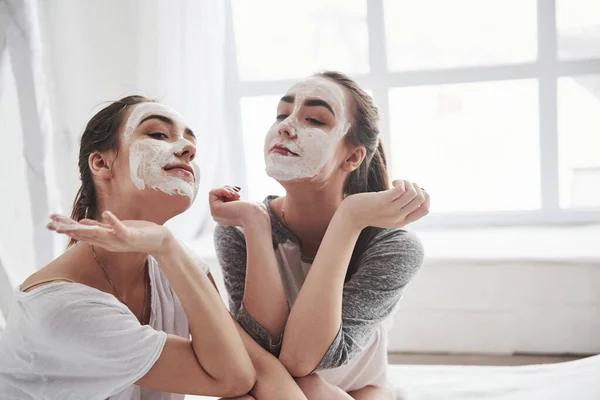
FAQs
Why should I invest time in a skincare routine?
Investing time in a skincare routine is essential because it helps maintain the health and appearance of your skin. Consistent skincare can prevent premature aging, protect against environmental damage, and address specific skin concerns, such as acne or dryness. By caring for your skin, you’re also promoting overall wellness and self-care.
How does skincare impact my skin’s aging process?
Skincare plays a crucial role in managing the aging process. Properly using products with antioxidants, sunscreens, and hydrating ingredients can minimize the effects of aging by protecting your skin from UV damage, boosting collagen production, and maintaining hydration levels. This can help reduce the appearance of fine lines and wrinkles.
What are the benefits of using sunscreen in my skincare routine?
Sunscreen is a vital component of skincare as it protects your skin from harmful UV rays that can cause sunburn, skin cancer, and accelerated aging. Regular use of sunscreen helps prevent pigmentation, maintains even skin tone, and keeps your skin looking youthful by shielding it from environmental stressors.
Can skincare products really make a difference for my skin type?
Absolutely! Skincare products are formulated to address various skin types and concerns. For example, moisturizers for dry skin help replenish lost hydration, while exfoliants for oily skin remove excess sebum and dead skin cells. Choosing products tailored to your skin type ensures that you’re addressing your skin’s specific needs effectively.
Why is it important to use products suited to my skin type?
Using products suited to your skin type is crucial because it ensures that you’re providing the right care for your unique skin needs. Products designed for specific skin types help balance, protect, and enhance your skin’s natural functions without causing irritation or exacerbating existing issues.
How does diet influence the effectiveness of my skincare routine?
Your diet has a significant impact on your skin’s health. Nutrient-rich foods can improve skin hydration, elasticity, and overall appearance. For instance, vitamins, antioxidants, and healthy fats support skin repair and protection. A balanced diet complements your skincare routine by promoting a glowing complexion from the inside out.
What role does hydration play in maintaining healthy skin?
Hydration is fundamental for maintaining healthy skin. Well-hydrated skin appears plump, smooth, and radiant, while dehydration can lead to dryness, flakiness, and fine lines. Drinking enough water and using hydrating skincare products help retain moisture, improve skin texture, and enhance overall skin health.
How can I determine the right skincare routine for my needs?
To determine the right skincare routine, start by identifying your skin type and specific concerns, such as acne, sensitivity, or aging. Consider consulting a dermatologist or skincare professional who can provide personalized recommendations based on your skin’s unique characteristics and needs.
Why is it important to remove makeup before going to bed?
Removing makeup before bed is crucial because it prevents clogged pores and allows your skin to breathe and repair overnight. Leftover makeup can contribute to breakouts, dullness, and irritation, so cleansing thoroughly ensures that your skin remains clean and receptive to nighttime treatments.
Can a good skincare routine improve my confidence?
Yes, a good skincare routine can significantly enhance your confidence. When your skin looks and feels healthy, it can boost your self-esteem and make you feel more comfortable in your own skin. Taking care of your skin is not only about appearance but also about fostering a positive self-image and well-being.
Conclusion
Skincare is crucial not just for maintaining a youthful appearance, but for overall health and well-being. Regular skincare practices help protect the skin from environmental damage, prevent premature aging, and manage conditions such as acne and dryness.
By investing in a consistent skincare routine, individuals can enhance their skin’s resilience, boost their confidence, and promote a healthier lifestyle. Ultimately, taking care of your skin is an essential component of self-care, reflecting both physical health and personal well-being.
